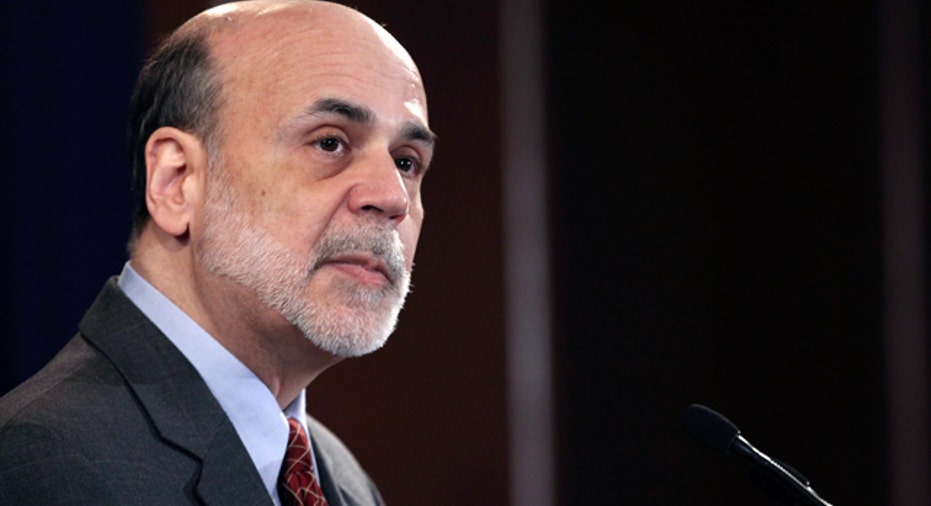A Cooling Economy Puts Heat on Bernanke

There are two items of major significance for the Federal Open Market Committee as its June 21-22 meeting approaches. One, the second round of the Federal Reserve's Treasury bond purchases from banks -- known as QE2 -- is definitely expiring this month. Secondly, the economic recovery that QE2 was designed to bolster has clearly lost momentum.
Investors are already pointing at the lackluster economy and pining for a third round of quantitative easing, which is essentially designed to drive down interest rates and thus induce lending that leads to job creation.
But Fed Chairman Ben Bernanke has acknowledged that any QE3 would have unattractive trade-offs -- namely inflation and a weaker U.S. dollar. Nevertheless, the pressure for more easing will certainly mount if the economy deteriorates further.
If you're getting a feeling of deja vu, you're not alone. We have the same laundry list of issues, and essentially the same timing, as we did last summer. A slowing economy in the U.S. and abroad, European debt issues and the end of Fed stimulus aren't unique to 2011.
Look at the parallels to last year: A nice first-half run for stocks that begins to wane amid fading economic momentum; the sunset of a Fed bond purchase program -- last year QE1 and this year QE2; Greece needed a bailout last year, and look who is back for more this year.
When Bernanke holds his press conference Wednesday afternoon, he'll likely repeat that he views the U.S. economic weakness as temporary, and it probably is. But Bernanke has also said inflation pressures are temporary. Yet, the Consumer Price Index was up 3.6% in the 12 months ending in May. So it is apparent that inflation isn't going away yet, despite lower commodity prices. In May, the core rate of inflation -- which excludes volatile food and energy -- was actually up more than the headline index that includes them.
This just isn't an environment where the Fed will take any steps toward tightening. So the Fed will continue reinvesting the proceeds of maturing government proceeds into Treasuries, which has the effect of pumping liquidity into the financial system. Interest rates will not be raised, with the federal funds rate still targeted at near-zero. And it will not be pulling in any of the liquidity lines or downsizing its own balance sheet to sop up as-yet unused bank reserves.
An uninspiring, slow-to-moderate growth rate for the economy means nothing will change in the foreseeable future. The question: Will we still be dealing with the same issues at the same time next year?



















